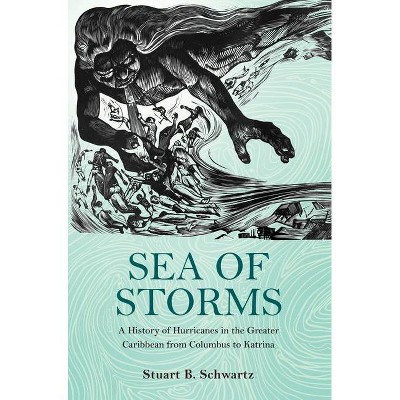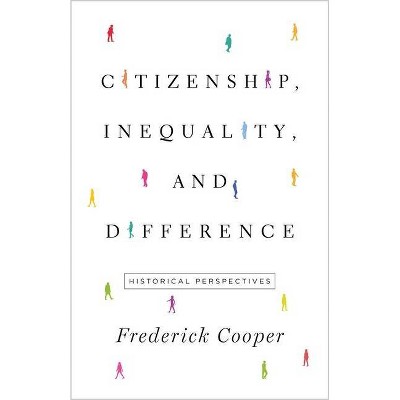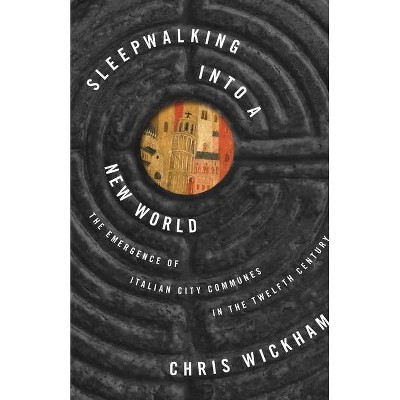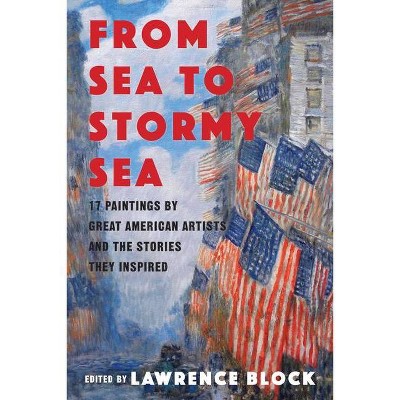Sea of Storms - (Lawrence Stone Lectures) by Stuart B Schwartz (Hardcover)

Similar Products
Products of same category from the store
AllProduct info
<p/><br></br><p><b> Book Synopsis </b></p></br></br><p><b>A panoramic social history of hurricanes in the Caribbean</b> <p/>The diverse cultures of the Caribbean have been shaped as much by hurricanes as they have by diplomacy, commerce, or the legacy of colonial rule. In this panoramic work of social history, Stuart Schwartz examines how Caribbean societies have responded to the dangers of hurricanes, and how these destructive storms have influenced the region's history, from the rise of plantations, to slavery and its abolition, to migrations, racial conflict, and war. <p/>Taking readers from the voyages of Columbus to the devastation of Hurricane Katrina, Schwartz looks at the ethical, political, and economic challenges that hurricanes posed to the Caribbean's indigenous populations and the different European peoples who ventured to the New World to exploit its riches. He describes how the United States provided the model for responding to environmental threats when it emerged as a major power and began to exert its influence over the Caribbean in the nineteenth century, and how the region's governments came to assume greater responsibilities for prevention and relief, efforts that by the end of the twentieth century were being questioned by free-market neoliberals. Schwartz sheds light on catastrophes like Katrina by framing them within a long and contentious history of human interaction with the natural world. <p/>Spanning more than five centuries and drawing on extensive archival research in Europe and the Americas, <i>Sea of Storms</i> emphasizes the continuing role of race, social inequality, and economic ideology in the shaping of our responses to natural disaster.</p><p/><br></br><p><b> From the Back Cover </b></p></br></br><p>"In this magisterial study, the histories of colonization, state formation, empire, slavery, and emancipation come into sharp relief when viewed through the eye of the hurricane. <i>Sea of Storms</i> is a tightly focused study that delivers perspectives as sweeping as the history of the Caribbean itself."<b>--Jorge Canizares-Esguerra, University of Texas at Austin</b></p><p>"A five-century history of wind, race, and revolution, <i>Sea of Storms</i> is a remarkable achievement. Schwartz manages to combine rigorous social analysis that calls to mind Fernand Braudel's longue duree with a sense of humanity equal to that of Eduardo Galeano. Timely and urgent, <i>Sea of Storms</i> is history at its best, revealing the past while helping us make sense of our present."<b>--Greg Grandin, author of <i>The Empire of Necessity: Slavery, Freedom, and Deception in the New World</i></b></p><p>"Stuart Schwartz has a vivid eye for evidence, a deft way with detail, and a knack for peopling vast historical landscapes with real lives. <i>Sea of Storms</i> is exemplary: a work of environmental history that's sensitive to culture, and of cultural history driven, but not determined, by the wind."<b>--Felipe Fernandez-Armesto, author of <i>Our America: A Hispanic History of the United States</i></b></p><p>"This is a magnificent book. In a breathtaking narrative spanning five centuries of hurricanes and their consequences, Schwartz accomplishes what no one has done before: a transnational history of the Caribbean region through the optic of one of the most widely shared of its historical experiences."<b>--Francisco A. Scarano, coeditor of <i>The Caribbean: A History of the Region and Its Peoples</i></b></p><p/><br></br><p><b> Review Quotes </b></p></br></br><br><i>Sea of Storms</i> is a book of Braudelian ambition by a master of the trade. The story is as engrossing as it is momentous.<b>---Jordan E. Lauhon, <i>Journal of Interdisciplinary History</i></b><br><br>A magisterial work that is at once a history of the impact of a recurring natural phenomenon in a vulnerable geographical zone, and a social, political, and economic history of the Caribbean area from the time of early European settlement to the twentieth century. . . . A superb book, rich in detail yet clear in its argument. Schwartz's vast research and knowledge of Latin American history have allowed him to integrate cultural history, popular music, art, and poetry into the story. Sea of Storms joins new work on the social and political implications of natural phenomena, but it also serves as a fine synthetic history of the Caribbean region.<b>---Ann Zulawski, <i>The Americas</i></b><br><br>Shortlisted for the 2015 Cundill Prize in Historical Literature, McGill University<br><br>Winner of the 2015 Gustav Ranis International Book Prize, MacMillan Center for International and Area Studies, Yale University<br><br><i>Sea of Storms</i> provides the most comprehensive synthesis of the history of hurricanes to date, not just for the Caribbean but for the extended realm of the greater Caribbean.<b>---Liz Skilton, <i>Journal of American History</i></b><br><br><p><i>Sea of Storms</i> is the product of decades of original research, a<br>synthesis of the knowledge of hurricanes and their effects, a handbook for students and established scholars hoping to craft their own studies on hurricanes, and a summary of the multidisciplinary literature to date. It is exemplary scholarship and is indispensable for anyone who hopes to learn more about historic hurricanes or intends to employ disasters as theoretical models in their own work.</p><b>---Sherry Johnson, <i>Journal of Historical Geography</i></b><br><br>[A] deeply scholarly work. It is also engaging to read.<b>---J. R. McNeill, <i>Wall Street Journal</i></b><br><br>[A] fascinating, extremely well-researched book.<b>---Philip Hoare, <i>Times Higher Education</i></b><br><br>[A] remarkable book.<b>---James Attlee, <i>Independent</i></b><br><br>[F]inely researched . . . [a] fascinating story.<b>---Adrian Barnett, <i>New Scientist</i></b><br><br>A master synthesizer. . . . Schwartz . . . does a herculean job of studying the impact that hurricaneshave had on the Greater Caribbean since the days of Columbus to Katrina.<b>---Douglas Brinkley, <i>Environmental History</i></b><br><br>Honorable Mention for the 2015 ASLI Choice Award in History, Atmospheric Science Librarians International<br><br>Honorable Mention for the 2016 Marysa Navarro Best Book Prize, New England Council on Latin American Studies (NECLAS)<br><br>Imaginative, original, erudite, and--like everything Schwartz writes--a very good read.<b>---Richard Price, <i>New West Indian Guide</i></b><br><br>Schwartz synthesizes the stormy Caribbean's commonalities, continuities, and ruptures with an often brilliant concision and illuminating eye.<b>---Shawn W. Miller, <i>American Historical Review</i></b><br><br>Schwartz's book offers a refreshing perspective and is an important contribution to the study of the region's hazards and societies.<b>---Johannes Bohle, <i>H-Soz-u-Kult</i></b><br><br>Schwartz's versatility as a historian is on full display in this erudite, accessible, and ultimately essential book.<b>---Kris Lane, <i>Reviews in American History</i></b><br><br>The author weaves a tapestry that traces the emergence of a collective awareness of this hazard during colonization of the Americas, and considers the consequences of storm damage and catastrophes for politics, economics, geography, and life in general in the modernization of both island and continental nations of the realm.-- "Choice"<br><p/><br></br><p><b> About the Author </b></p></br></br><b>Stuart B. Schwartz</b> is the George Burton Adams Professor of History and chair of the Council on Latin American and Iberian Studies at Yale University. His many books include <i>All Can Be Saved: Religious Tolerance and Salvation in the Iberian Atlantic World</i>.
Price History
Price Archive shows prices from various stores, lets you see history and find the cheapest. There is no actual sale on the website. For all support, inquiry and suggestion messagescommunication@pricearchive.us




















